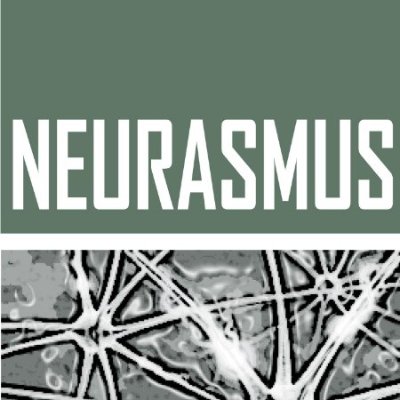Neuroscience Masters
High standard
The Bordeaux Master of Neuroscience is a 2-year (120 ECTS) full-time Neuroscience study program, with a strong emphasis on training in cutting-edge techniques in all major topics of brain research, from molecules to cognition. Its main objective is to foster Neuroscience education and train new brain scientists, by offering a unique interdisciplinary and integrated approach from normal brain function to brain disorders.
Excellent bi-lingual, international teaching
In Bordeaux, about 30 professors and lecturers in Neuroscience are involved in teaching as well as many neuroscientists and colleagues specialized in physiology, genetics, psychology, modeling, medicine, etc. Teaching can be in French or in English (NeuroBim) during the first year, according to the chosen track. The second year of the Neuroscience Master program is fully taught in English for all students.
Top Research
Neuroscience in Bordeaux has grown over the last 15 years to become one of the largest Neuroscience scientific communities in France and in Europe, with over 600 people working in the various Neuroscience laboratories of the University of Bordeaux. We have also built up an international education network of academic partners that offer excellent opportunities for traineeships abroad (Canada, US, Japan…). Through internationally oriented industrial consortia such as Pierre Fabre, Sanofi, Janssen, Convergence Pharmaceuticals Ltd, Servier… students will have access to Pharma multinationals for traineeships.
Going further : Master Formation Details
EMN-Online (Euro-Mediterranean Master in Neuroscience and Biotechnology)
Multi-country Master
EMN is a Euro-Me diterranean master’s degree in Neuroscience and Biotechnology. The proposed curriculum is based on the courses offered by 11 partner universities, 5 in Europe (Bordeaux, Marseille, Nice, Turin and Valencia), and 6 in the South-Mediterranean area (Alexandria and Senghor in Egypt, Saint-Joseph and Saint Esprit de Kaslik in Lebanon, Tetuan and Marrakech in Morocco). The Neurex association (upper-Rheine neuroscience network), the Landau network “A. Volta”, and the French-Moroccan Neuroscience “Groupement de Recherche International” (GDRI) are associated partners also involved in the project. The ISIS master’s degree was created as part of a TEMPUS IV project (ISIS, 1,3 M€, 2010-2014) funded by the European Commission and coordinated by Bordeaux University. It benefits now from a Strategic Partnership grant within the frame of the EARSMUS+ programme (410 k€, 2015-2018).
diterranean master’s degree in Neuroscience and Biotechnology. The proposed curriculum is based on the courses offered by 11 partner universities, 5 in Europe (Bordeaux, Marseille, Nice, Turin and Valencia), and 6 in the South-Mediterranean area (Alexandria and Senghor in Egypt, Saint-Joseph and Saint Esprit de Kaslik in Lebanon, Tetuan and Marrakech in Morocco). The Neurex association (upper-Rheine neuroscience network), the Landau network “A. Volta”, and the French-Moroccan Neuroscience “Groupement de Recherche International” (GDRI) are associated partners also involved in the project. The ISIS master’s degree was created as part of a TEMPUS IV project (ISIS, 1,3 M€, 2010-2014) funded by the European Commission and coordinated by Bordeaux University. It benefits now from a Strategic Partnership grant within the frame of the EARSMUS+ programme (410 k€, 2015-2018).
High Objectives
This master’s degree aims are three fold. (i) It will provide students with access to the techniques and concepts of modern biology through courses in Neuroscience. (ii) It will contribute to the standardization of teaching in Neuroscience and Biotechnology throughout the Euro-Mediterranean space, thus facilitating the acquisition of homogenous high level competences, knowledge and know-how by the students. (iii) Finally, this joined program aims at fostering exchanges and cooperation between the two sides of the Mediterranean area. The new grant that has been awarded in 2015 will serve to develop e-learning tools and to open the programme to LongLife Learning.
Together with other Euro-Mediterranean projects (N€uromed, NEUreN), this partnership allows organizing powerful Neuroscience networks that result in mutual benefits for all students and staff from Euro-Mediterranean Universities.
Going further : English Flyer
Neurasmus European Master
The Neurasmus Programme is an Erasmus Mundus Master Course which fosters cooperation between higher education institutions and academic staff in Europe and Third Countries with a view to creating poles of excellence and providing highly trained human resources. Joint programmes of outstanding academic quality are designed and implemented by a consortium of European universities from at least 3 different countries. Consortia may also include universities from other parts of the world. Programmes include obligatory study and research periods, in at least two universities, and award recognised double, multiple or joint degrees.

